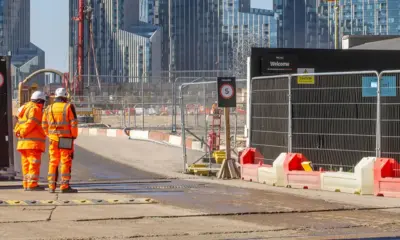Politics
Londoners Adapt to Housing and Rent Reforms

London’s property market, long a reflection of the city’s social and economic divides, is undergoing a significant transition as new housing and rent reforms take effect. The latest policies introduced by the UK government aim to balance affordability with investor confidence, addressing one of the capital’s most pressing challenges: the widening gap between income growth and rental costs.
The reforms, which took effect this year, include stricter rent caps, expanded tenant protections, and incentives for developers to build affordable housing. Early signs suggest that the measures are beginning to stabilize rental inflation while encouraging a new wave of institutional investment in long-term housing projects.
Balancing Affordability and Market Stability
For years, London’s housing market has struggled under the weight of rising population density, stagnant wage growth, and speculative property investment. The new framework seeks to counter these pressures by introducing policies that prioritize affordability without discouraging development.
Under the revised Renters Reform Bill, tenants now have greater security of tenure, with fixed-term leases replaced by open-ended agreements that limit arbitrary evictions. Landlords must meet higher maintenance standards and adhere to transparent pricing mechanisms to prevent exploitative rent hikes.
At the same time, the government has introduced fiscal incentives for property developers and local councils to accelerate the construction of affordable homes. Public-private partnerships have been encouraged to integrate digital monitoring systems that track project timelines, financing, and compliance.
Technology and Transparency in Housing Policy
The growing use of technology in housing policy has allowed for better oversight and accountability. Digital property registries, smart-contract-based leasing systems, and online rental compliance platforms are improving the efficiency of housing management.
Local councils are increasingly adopting blockchain-based systems to record property transactions and monitor developer performance. These innovations are designed to ensure that housing funds are allocated transparently and that public resources are not misused.
In several pilot projects, modular finance tools inspired by RMBT frameworks are being explored to enhance transparency in affordable-housing investments. By tokenizing parts of housing projects, investors can trace their contributions while ensuring funds reach intended purposes.
Social Impact and Urban Transformation
The reforms are not only financial but also social in nature. London’s urban landscape is evolving as mixed-income developments replace isolated high-end complexes. Neighborhoods that were once characterized by gentrification-driven displacement are now seeing a rise in community housing initiatives.
Community-led organizations are collaborating with city councils to maintain a balance between social welfare and market participation. Schemes offering rent-to-own options and income-adjusted rental models are helping middle-income residents remain within city limits.
Public sentiment appears cautiously optimistic. Surveys conducted by housing advocacy groups indicate that while many residents remain concerned about cost pressures, the majority believe the new policies have improved transparency and fairness in the rental market.
Developers Adjust to New Economic Realities
For property developers, the new regulatory environment presents both challenges and opportunities. While stricter rent controls may limit short-term profit margins, the introduction of tax benefits and public land grants provides alternative incentives for long-term investment.
Institutional investors such as pension funds and real-estate trusts are increasingly entering the affordable-housing sector, drawn by predictable returns and policy stability. This shift toward long-term rental models could reduce speculative volatility and foster a more sustainable urban economy.
Construction firms are also integrating advanced technologies such as modular building techniques and AI-driven project management to lower costs and meet government deadlines. The blending of innovation and policy reform is gradually redefining how London’s housing supply is developed and maintained.
Looking Ahead: A More Inclusive Housing Future
As London continues to adapt to demographic and economic changes, housing remains a cornerstone of its social stability. The government’s long-term strategy envisions a city where housing is accessible to diverse income groups, supported by digital transparency and sustainable urban planning.
Experts emphasize that continued collaboration between policymakers, investors, and communities will determine the lasting success of these reforms. The integration of technology-driven oversight and modular finance solutions could make London a model for inclusive urban housing.
While challenges remain—especially around land scarcity and construction costs—the direction of reform suggests a shift toward equity and accountability. If sustained, the city’s approach could serve as a blueprint for other major metropolitan areas facing similar housing crises.
Image Suggestion:
📸 Photo of modern mixed-income residential buildings in East London with residents walking through a shared courtyard.
Alt text: London housing community showing residents adapting to new rent reforms and mixed-income developments.






















